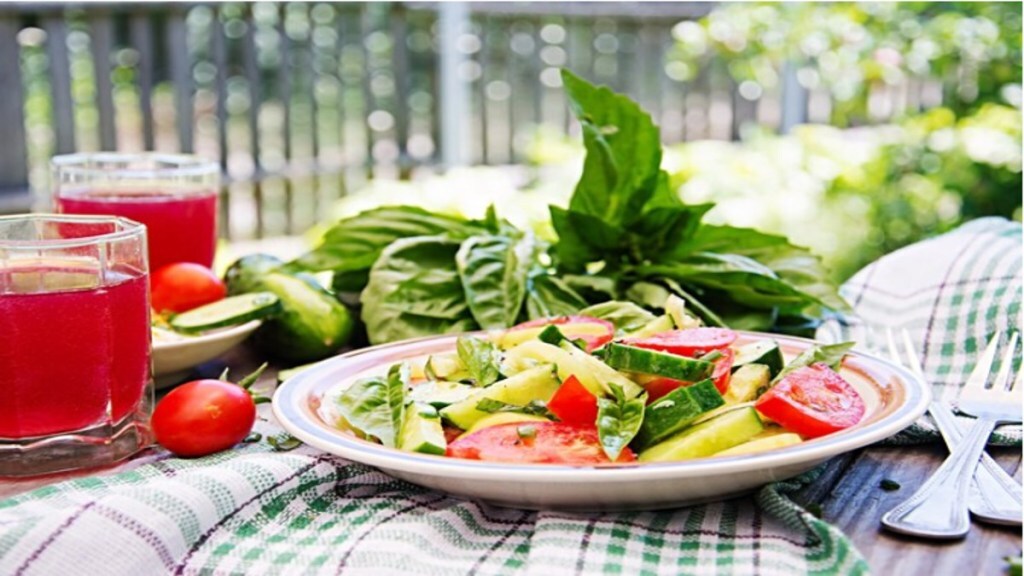You must have often heard that foods like chicken, fish or eggs generate heat in the body or cause discomfort and digestion problems, and are best avoided during summer. It is also a popular notion that dry fruits are good only for the winter season.
So, are these foods really bad for us in summer? Or is it just a myth? Many people have these niggling queries in their mind, with some even going to the extent of completely banishing these food items from their diets in the hot weather. Also, with a change in lifestyle and a rise in adoption of healthy habits, people are now curious to know what they are eating or what they should eat to get the most out of their diet.
There are many myths about foods that do the rounds, experts say. For instance, contrary to popular belief, dry fruits can actually be consumed throughout the year. In fact, they make for a perfect healthy summer snack as they are a concentrated source of energy, fibre and essential nutrients. Also, soaking them in water plumps them up and makes them even more enjoyable.
Similarly, foods like chicken, fish or eggs are a powerhouse of essential vitamins and minerals and should not be avoided even if you are on a weight loss diet. The key, however, is to have them in moderation.
Also, fats are not always as bad as they are made out to be. There are many healthy fats found in avocados, nuts, seeds and olive oil, which are extremely beneficial for heart health, brain function and nutrient absorption. In the same vein, whole grains, fruits, vegetables and legumes are excellent sources of complex carbohydrates and provide the much-needed nutrients, fibre and sustained energy to the body.
Another popular myth revolves around egg yolks, with many saying that they raise blood cholesterol levels and are hence unhealthy. It’s true that egg yolks have high cholesterol content but dietary cholesterol has very minimal impact on blood cholesterol levels for most people. Eggs are protein-rich foods, full of vitamins, minerals and healthy fats. The yolk has nutrients like choline important for brain health. Consuming an egg a day gives only about 77 calories, but 6 grams of high-quality protein, 5 grams of fat, and 1.6 grams of saturated fat, along with iron, vitamins, minerals and carotenoids. Egg yolks contain vitamins like B12, B2, A, and folate as well as vitamin D good for healthy bones and teeth.
Summer time also means mango time. But many feel that fruits such as mangoes and bananas are heavy and fattening. The fact is that mangoes and bananas are full of nutrients that help boost immunity and are high in dietary fibre. However, if you are diabetic, you should eat them in moderation as they have a high sugar content.
Dr Deepali Sharma, clinical nutritionist, CK Birla Hospital Delhi feels summer is a time for fun in the sun, but it can also be a challenge as there are many myths surrounding what to eat and drink during this season, and hence debunking them is important. For instance, many feel spicy or hot foods make you feel hotter and lead to excessive sweating.
But the fact is — sweating is good for your body. “Sweating is the body’s natural way to cool down. As sweat evaporates, it takes heat with it, leaving a person feeling cooler. So, embracing the spice (within reason) and enjoying those flavourful summer dishes is a good option,” says Dr Sharma.
Similarly, there are myths like cold foods and drinks cooling you down faster but the truth is that the body actually works harder to warm up icy liquids to the core temperature. So, a refreshing popsicle might feel nice initially, but the effect is temporary. “Opt for cool (not ice-cold) water or beverages throughout the day for sustained hydration,”
she adds. Dr Sharma recommends focusing on fruits and vegetables with high water content like watermelon, cucumber, celery and leafy greens. “Enjoy yoghurt parfaits with fresh fruit and granola for a cool and satisfying breakfast. Freeze grapes for a healthy and refreshing on-the-go snack. Infuse water with fruits, herbs or cucumbers for added flavour and hydration. Don’t forget the electrolytes. Choose coconut water or natural electrolyte drinks to replenish what you lose through sweat,” she adds.
In Ayurveda, summer is that time of the year when pitta, consisting of the fire and water elements, rules.
Pitta is one of the three Ayurvedic doshas, or qualities, and each person’s unique constitution contains all three-although typically one quality predominates. Lavana (salty) food with katu (pungent) and amla (sour) taste and ushna (warm) should be avoided. As per Dr Ravishankar Polisetty, founder and director of Poly Scientific Ayurveda (PSA), an Ayurvedic clinic in Hyderabad, “Each person has a unique blend of the three doshas — vata, pitta and kapha — with one usually predominating.
Each dosha has distinct qualities or ‘gunas’. Summer is known as the pitta season in Ayurveda. The high temperatures can easily imbalance the pitta dosha,” he adds.
Ayurveda states that almonds create heat in the body, aiding digestion and metabolism. In summer, this heat can exacerbate pitta dosha, and hence it is recommended to avoid almonds. However, Polisetty advises that soaked almonds, rather than dry almonds, are more effective in pacifying both vata and pitta. “Managing pitta dosha in summer promotes overall well-being. To maintain harmony in body and mind, I suggest adjusting your diet and lifestyle by staying hydrated, eating cooling foods, and practising gentle yoga and meditation,” he adds.


